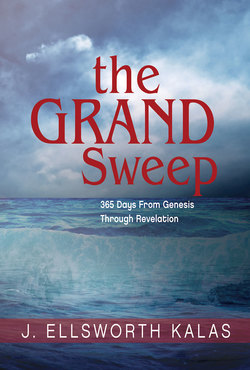Читать книгу The Grand Sweep - Large Print - J. Ellsworth Kalas - Страница 34
На сайте Литреса книга снята с продажи.
Оглавление| EXODUS 8–10; PSALM 29 | Week 4, Day 6 |
The series of plagues follows a pattern of somewhat predictable disaster in the way each leads into another. The blood is followed by frogs in the land, and their rotting stench by gnats; then swarms of flies, followed by a plague of the livestock. So it goes, through boils, hail, locusts, and then thick darkness.
And always, a pendulum swinging in Pharaoh’s soul. He repents, then rejects his own repentance. Sometimes the Scripture reports that God hardened Pharaoh’s heart, and at other times that Pharaoh himself hardened Pharaoh’s heart. Which is it? And how do we reconcile the idea of God hardening someone’s heart? Charles Wesley found it easy to understand:
“There needed, Lord, no act of thine,
If Pharaoh had a heart like mine:
One moment leave me but alone,
And mine, alas, is turned to stone.”
It seems to me there is always this fierce inner struggle between our self-will and the Voice that calls us. The Voice is sometimes pleading, sometimes insisting, sometimes fierce, but always wanting us. Destruction, as a last resort, is chosen by the victim, not by God.
The “darkness that can be felt” (10:21) is symbolic even while it is real, as it portrays the terror of the human soul that is absent from God and in rebellion against the Eternal.
PRAYER: Please give me a heart that is always tender toward you and your purposes, for my sake and yours; through Christ my Lord. Amen.
What conclusions do you draw when you ponder God’s hardening Pharaoh’s heart, Pharaoh’s hardening his own heart, and Charles Wesley’s poem interpreting the story from his own experience?
